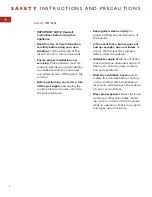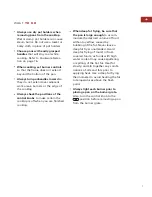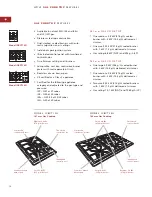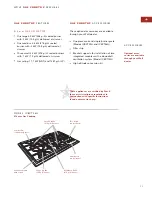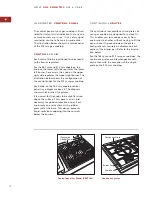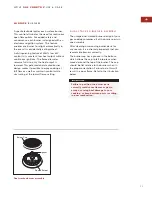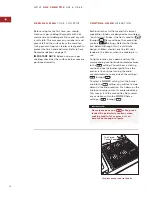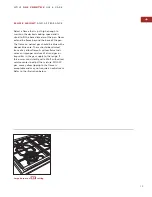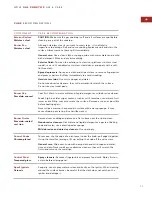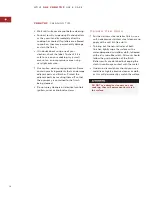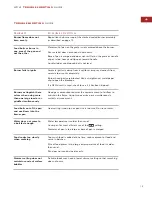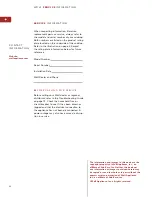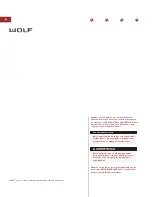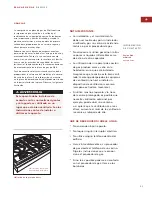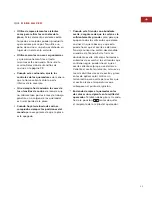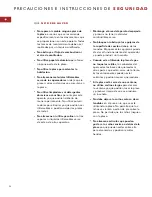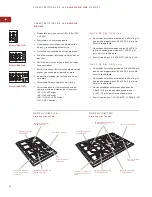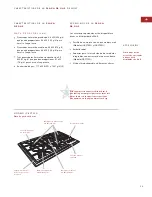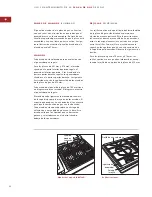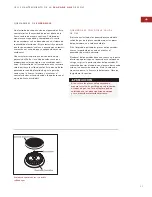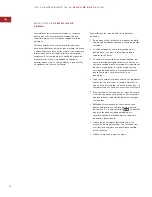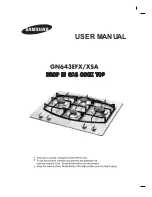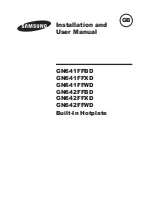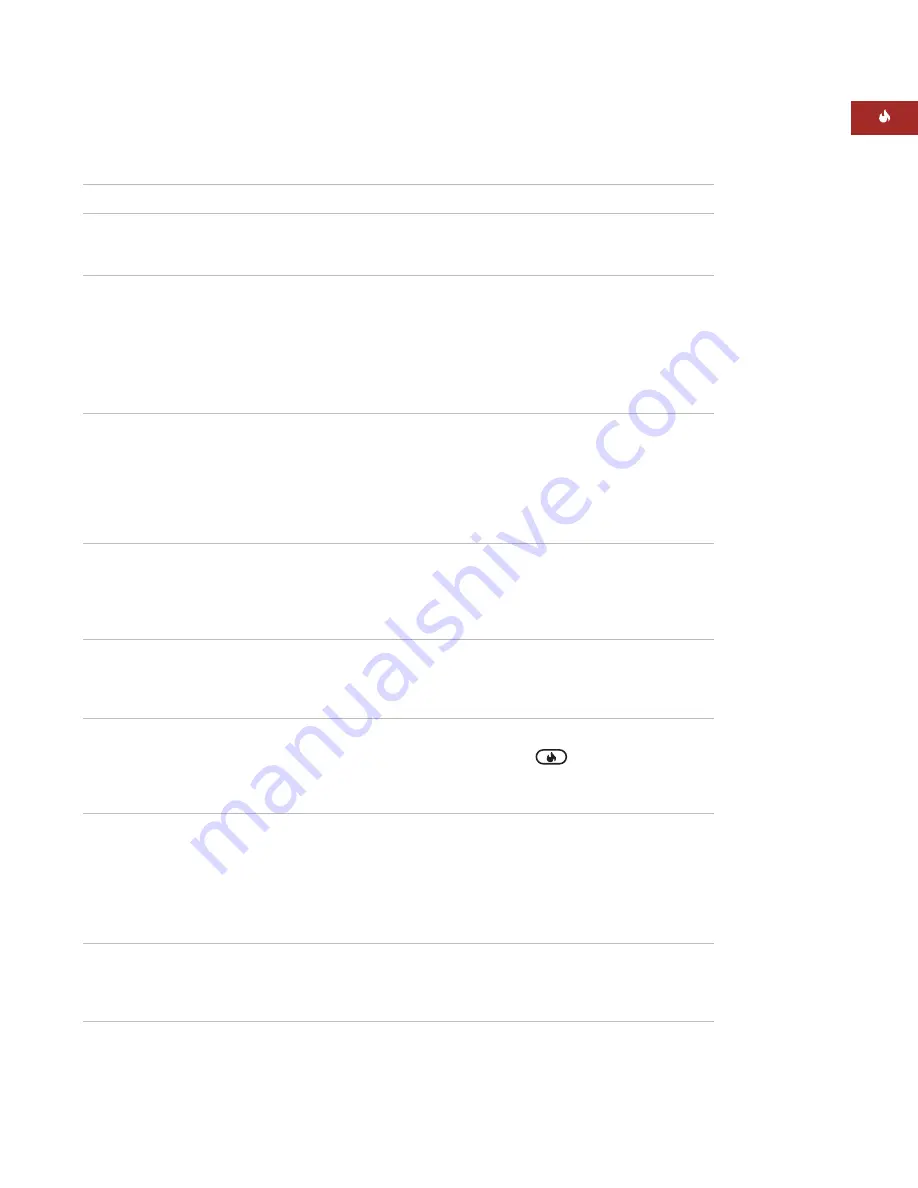
19
W O L F
T R O U B L E S H O O T I N G
G U I D E
T R O U B L E S H O O T I N G
G U I D E
P R O B L E M
P O S S I B L E S O L U T I O N
Burner flame does not
Reposition the burner cap of the stacked sealed burner assembly
burn evenly
as described on page 13.
Placement of pan on the grate is not centered above the burner.
Pan material does not conduct heat evenly.
Base of pan is warped and does not rest flat on the grate or handle
of pan is too heavy and tips pan toward handle.
Countertop or cooktop cabinet is not level.
Burner fails to ignite
Ceramic igniter is damp from a spillover or spray cleaner. Allow
ceramic to dry out completely.
Burner head ports are blocked. Use a straightened, metal paper
clip to open the blockage.
If a GFCI circuit is used, check to see if it has been tripped.
Burners extinguish them-
Good gas combustion requires the correct amount of airflow to
selves when using more
maintain the flame. Using two oversize pans simultaneously
than one large roaster or
restricts air movement.
griddle simultaneously
Food boils out of the pan
Heat setting is too high or pan size is too small for its contents.
and overflows into the
burner pan
Water does not come to
Water temperature is colder than usual.
a boil fast enough
Cover pan for most efficient use of the
setting.
Diameter of pan is too large or base of pan is warped.
Food cooks too slowly
Too much food is added at one time; reduce amount of food and
when sautéing
sauté in batches.
Size of food pieces is too large or temperature of food is colder
than usual.
Pan does not conduct heat evenly.
Simmer setting does not
Delicate foods may need a lower simmer setting so that scorching
maintain constant surface
does not occur.
bubbles
Food boils or burns in
one area of the pan and
not the other


